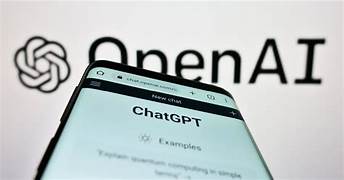WASHINGTON, D.C. — April 22, 2025 — OpenAI has expressed interest in acquiring Google Chrome, the world’s most widely used web browser, should it be spun off as part of a potential remedy in the U.S. Department of Justice’s antitrust case against Google. The statement, delivered during court testimony, marks a dramatic turn in the high-profile trial and signals a potential power shift in the tech and AI industries.
The revelation came from OpenAI’s Head of Product, Nick Turley, who testified during the trial’s remedy phase. When asked if OpenAI would consider purchasing Chrome if the court ordered Google to divest it, Turley responded, “Yes, we would be interested.”
This admission comes as the DOJ pushes for significant structural changes at Google, arguing that its dominance in the online search market stifles competition and innovation. Chrome, which commands over 65% of the global desktop browser market and nearly 70% of mobile traffic, plays a crucial role in Google’s ecosystem. Regulators have proposed its divestiture to level the playing field for smaller rivals.
Turley’s testimony also shed light on OpenAI’s broader ambitions in the search and browser space. The company, best known for developing the ChatGPT AI model, has struggled with search integration. OpenAI previously sought a partnership with Google to incorporate its search results into ChatGPT but was denied. Currently, ChatGPT relies on Microsoft’s Bing for web search, though Turley cited quality concerns.
To address this, OpenAI is developing its own search index and aims to have ChatGPT answer 80% of search queries using internal tools by the end of 2025. Still, progress has been slower than expected, prompting the company to consider alternatives—including control of a major browser.
The antitrust trial has also revealed internal Google documents showing the company explored exclusive distribution deals with Android phone manufacturers for its Gemini AI app and Chrome. While Google has since walked back some of these plans, prosecutors argue that the tech giant continues to use its dominant browser and search positions to suppress competition.
OpenAI’s potential acquisition of Chrome would dramatically alter the browser market and introduce a new player in the battle for internet real estate. In addition to its interest in Chrome, OpenAI is reportedly building its own AI-powered browser, with former Google Chrome engineers like Darin Fisher and Ben Goodger leading the effort.
This browser, still in development, is expected to integrate ChatGPT deeply into the user experience—enabling conversational web navigation, personalized results, and AI-assisted browsing.
Meanwhile, OpenAI is also exploring commercial partnerships with companies like Redfin, Eventbrite, and Condé Nast to develop specialized AI search tools for industries such as real estate, travel, and media. Talks are reportedly underway with device manufacturers, including Samsung, to embed OpenAI’s tools directly into smartphones and other hardware.
As the DOJ trial continues, the question of whether Chrome could actually be split from Google remains unresolved. But OpenAI’s readiness to step in as a buyer underscores the growing convergence of AI and internet infrastructure—and the fierce competition unfolding between the old guard of Big Tech and the new wave of AI-first companies.
